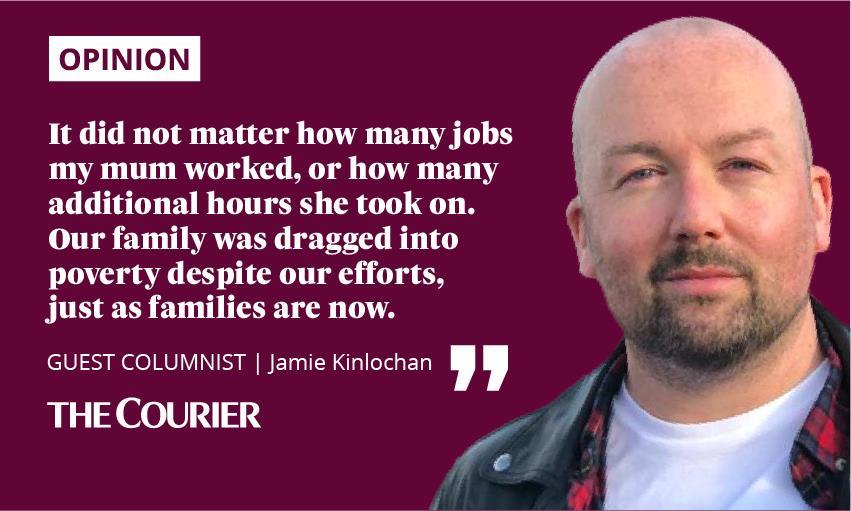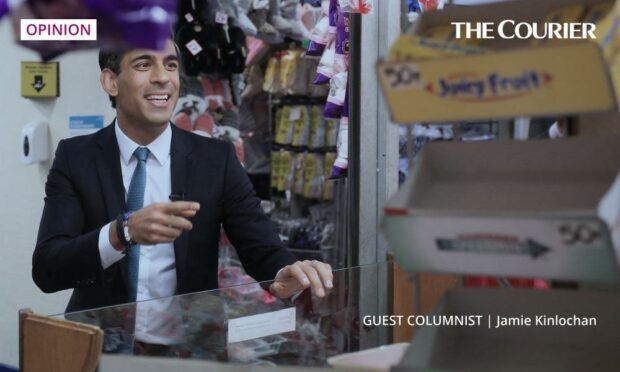In this week’s budget, the Chancellor responded to calls from campaigners, organisations and six former Conservative work and pensions secretaries to keep people away from the brink of poverty.
Unfortunately his solution is less than what was needed.
Rather than keep the increase of £20 in Universal Credit, a blanket move that would stop millions of people being dragged into poverty, the Chancellor will instead cut the Universal Credit taper from 63p to 55p.
It means those who are in work, but who still need Universal Credit to get by because wages are so low and the cost of living is so high, will be able to keep more of what they earn.
Changing the taper rate, however, will do nothing to support people who are not working and still facing spiralling food, energy and transport prices.

There are many reasons that people do not work and many reasons why people turn to the state for help.
We don’t have to look further than the last 18 months to understand that it could be any of us, at any time, who need support.
It is not helpful that those who are not in work are being left with the least support as a pandemic continues to kill hundreds of people every day.
Creating a two tier welfare system, because the economy has been allowed to become so imbalanced and dysfunctional, is the worst of all worlds.
There’s shame in being dragged into poverty
We have to turn down the invitation to sit in judgement of those who aren’t working.
The shame of poverty is pernicious and it doesn’t get the best out of people.
Shame doesn’t motivate us effectively, broaden our horizons or put a penny back into the economy.
Shame made me quieter in school and less likely to ask for help.
The shame of not having as much money as others meant waiting further up the street while my mum looked around Your More Store, for fear that someone from school would see me go in.
If they knew what it was like to hide letters about school trips because you don’t want to stress out your mum.
If they knew what it was like to make a game out of turning everything off and hiding on the floor because the Provvy is at the door and you don’t have the money.
— Jamie Kinlochan (@JamieKinlochan) September 11, 2021
It meant waiting until everyone had left the local Spar before I went in with the government issue token that got us seven pints of milk a week.
And it meant lying to people in school, telling them that my mum was in to talk about my work when she was really in to arrange a payment plan for the school trip.
It did not matter how many jobs my mum worked, or how many additional hours she took on.
Our family was dragged into poverty despite our efforts, just as families are now.
Universal credit cut is no laughing matter
Shame is felt more deeply by women, adolescents and older people.
So too is the impact of this cut to Universal Credit.
According to the Joesph Rowntree Foundation, families with children will be disproportionately impacted by the decision to cut the lifeline uplift in Universal Credit.
Six in ten of all single-parent families in the UK will be impacted by the decision.
That’s why it was especially difficult to see the video from a county council meeting in Kent this week where elected members groaned and joked at the mention of the campaign to keep the uplift in Universal Credit.
The chair of the meeting disclosed that some councillors were running a sweepstake on who would be the first to mention the campaign.
So bored are these elected representatives of hearing about solutions to poverty, they’ve turned attempts to keep children fed into a game.
I thought those people’s constituents, and how crushing it must feel to have their representatives turn the challenges that they face into entertainment.
Budget measures do not address poverty
Despite their dismissals, this week’s budget is about our social security system subsidising a dysfunctional economy.
Things are going to get less affordable for those who cannot work and those who are looking for work.
Meanwhile, cuts to alcohol duty and air taxes means things are going to get cheaper for bankers who are flying between London and Edinburgh and stopping off at the champagne bar on the way.
Most of us are just one crisis away from needing help
The budget has no answers for the person who has received another knock back from an employer this week.
No answers for the family that can’t balance childcare, work and an ill grandparent.
No answers for the carer who is looking after family member without proper recognition.
And no answers for the cancer patient who is worrying about their bills while receiving treatment.
🚨 JRF responds to today's Budget #Budget2021 #SpendingReview@KatieSchmuecker "This is a tale of two Budgets for families on low incomes."
👉https://t.co/mk76aldcMd pic.twitter.com/bXuyhxUs9F
— Joseph Rowntree Foundation (@jrf_uk) October 27, 2021
When we talk about supporting people who are struggling, this is who we are talking about.
Most of us are just one crisis away from needing help.
Should that time come, we deserve to get that free from judgement and shame.
Jamie Kinlochan is a campaigner for social justice and a consultant, working to tell the stories of those who are often unheard.
